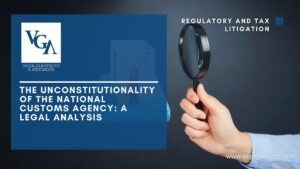On December 9, 2022, the First Chamber of the Mexican Supreme Court of Justice (SCJN) two issued two interpretation criteria, in which it reaffirms the doctrinal line that it has had in matters of Commercial arbitration.
To date, the SCJN’s interpretation of the content and scope of various principles such as due process and legality in arbitration proceedings has been that they are not directly governed by the guarantees of articles 14 and 16 of the Constitution that regulate the acts of the state authorities; In other words, the same requirements regarding these rights are not applicable to the judicial and arbitration proceedings.
The opinion of the Court leans towards continuing to respect the arbitration principles and only apply by analogy to the constitutional parameter of due process and the right to be heard when the arbitration rules and principles clearly admit compatibility or as long as the necessary adaptations are made to respect the essential nature, purposes, and particularities of arbitration.
This contributes to the protection of arbitration as an effective method of dispute resolution far from the state tribunals, and respects the voluntary and private nature of arbitration that is based on the arbitration agreement and on the regulations that the parties agree that will govern the solution of the conflict.
In these theses, the SCJN also made a specific analysis of articles 1434 and 1457, section I, subparagraph b), the final part, of the Commercial Code. Regarding these, it points out that they have a connotation of procedural guarantee, that is, they establish rights aimed at demanding their respect and prevalence in the conduct of the actions of the arbitration process and intend to grant the parties equality in the process so that they have an identical basis to fully assert its defense.
Continues and grants content and scope to the right of defense in arbitration, establishing that its nature is primarily instrumental, the exercise of which concerns the parties, and must be respected by the arbitrator; in order not to hinder or deprive the parties in the acts prior to the issuance of the award.
It also delimits its scope in terms of the analysis that must be made as cases of nullity of an arbitral award and indicates that these articles refer to procedural violations that have prevented the full exercise of the rights of defense or violations in the award directly related to defense opportunity. Thus, these articles do not allow the state tribunals to extend the analysis to considerations on the assessment of evidence or on the lack of response to an argument formulated by the parties, since these are substantive aspects that are typical of the exercise of the arbitrator in his work cannot nullify an arbitral award on such basis.
On the other hand, it also carries out an analysis of the constitutionality of these articles and establishes that the fact that it is not possible to analyze the merits of the arbitration decision does not render said provisions unconstitutional, in light of the right to due process of arbitration and even goes so far as to affirm that it could be the prerogative of the parties to agree on a substantive review of the arbitration award from the moment of agreeing to arbitration as a means of dispute resolution since the will of the parties is what designed the arbitral process. However, it affirms that the fact that judicial control over the merits of the award is not foreseen through an ordinary resource is in accordance with the nature and purposes of arbitration.
Although Mexico still has a long way to go in interpreting the principles involved in alternative dispute resolution methods such as arbitration, the truth is that these criteria shed light on the criteria that the First Chamber has regarding the independence of arbitration from the judicial tribunals and thus we can advance more and more towards a robust and efficient arbitration practice in Mexico.
Interpretation criteria published:
- LAUDO ARBITRAL. LOS ARTÍCULOS 1457, FRACCIÓN I, INCISO B), PARTE FINAL, Y 1434, AMBOS DEL CÓDIGO DE COMERCIO QUE REGULAN LA CAUSA DE NULIDAD POR VIOLACIÓN A LA IGUALDAD DE TRATO Y LA PLENA OPORTUNIDAD DE HACER VALER LOS DERECHOS EN EL PROCEDIMIENTO ARBITRAL, NO SON INCONSTITUCIONALES POR NO PERMITIR UN CONTROL JUDICIAL DEL FONDO DEL LAUDO BAJO SUS HIPÓTESIS NORMATIVAS.
- NULIDAD DE LAUDO ARBITRAL. LA CAUSA PREVISTA EN EL ARTÍCULO 1457, FRACCIÓN I, INCISO B), PARTE FINAL, EN RELACIÓN CON EL DIVERSO 1434, AMBOS DEL CÓDIGO DE COMERCIO, SE REFIERE A LA IGUALDAD DE TRATO Y LA PLENA OPORTUNIDAD DE HACER VALER LOS DERECHOS DE LAS PARTES DURANTE LA SUSTANCIACIÓN DEL PROCEDIMIENTO DE ARBITRAJE.




